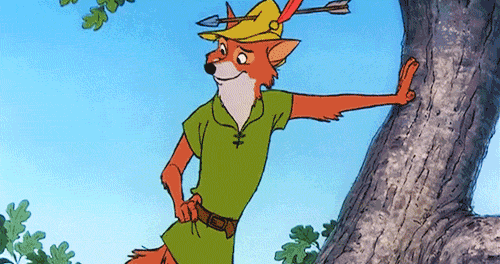
Robin Hood, the generous bandit of the old English ballads whose prestige has survived to this day, robbed the rich to help the poor as a consequence of his very precise idea of economic reality in his time. The wealth in the twelfth century consisted essentially of the possession of farmland and of minted gold and silver coins. Both were scarce and in few hands. The immense majority of the population was peasants incorporated into the land by feudal law, who led a miserable life and who, by consequence of any bad harvest, perished by the hundreds. The gold and silver coins were in the iron chests of the feudal lords or in the piggy banks of the usurers, and they were few, scarce and expensive.
It was a time of primitive and static agricultural economy, in which year after year the wealth increased very little and, practically, the only way to acquire it was taking it by violence to another, either by feudal war or by the exploit of the bandit.
Robin Hood could not remedy the terrible social problem of his time but managed to mitigate it transiently and locally in some cases, distributing to the poor part of the spoils of his robbery, thereby relieving, at least temporarily, the misery of some.
In the time since the XII century until today, not only the economic reality but the very concept of wealth has changed in such a radical and complete way that Robin Hood could not understand it with the notions of his time. Wealth ceased to be static and became dynamic and growing, it stopped being things and currencies and became the capacity to produce and the growing and complex forms of the market. The wealth of today's rich people rarely consists of land, and much less accumulated gold coins, but rather fluctuating rows of figures that computers manipulate and alter every second and correspond to a fluid and dynamic notion of continuous creation. of purchasing power through the activity of economic agents.
The first to observe this was a compatriot of Robin Hood: Adam Smith, in the late eighteenth century, in the changing economic landscape of England of his time, he realized that the wealth of a nation is the volume of goods and services that he produces annually with his work.
England today is very similar to that of the twelfth century and wealth is not in the hands of a few feudal lords but in a crowd of anonymous companies, in which millions of people participate as shareholders and workers. This makes today's problem not, as in the days of the legendary bandit, to take away the few that have to give something to some of the many who do not have but, on the contrary, to achieve that, with the work of all, the productivity of all, the cooperation of all, every day more goods and services are produced to increase the level of general welfare. This does not mean that those who have more should not contribute more, since everyone should contribute to public spending and social welfare in proportion to their economic level.
What is inadmissible, absurd and contrary to the general interest is that there are political sectors that continue to raise today the problem of wealth and poverty in the terms that Robin Hood did and come to believe that the only way to improve the level of The life of the less favored is taking away part of their wealth from the most favored and distributing it generously. This is a vision totally contrary to the economic reality of today's world, which is at the very base of the great economic and social failure that the countries of Eastern Europe and the Third World have incurred.
The real problem that is posing today's governments is not to find a better way to distribute an existing wealth, which is evidently often scandalously distributed, but to find, through education, preparation for work and the stimulus to creative activity, the way of distributing better among all social classes the ability to produce wealth.
The good Robin Hood did to the poor was necessarily limited and transitory. On the other hand, the incorporation of large social sectors into a productive economy is a real and permanent progress that benefits everyone.
